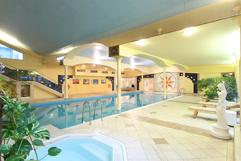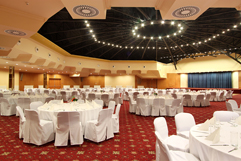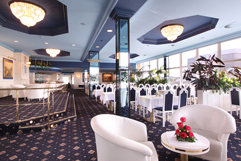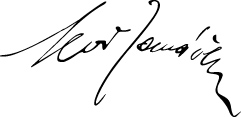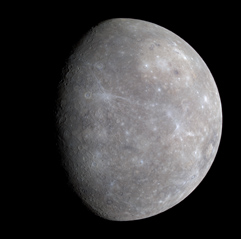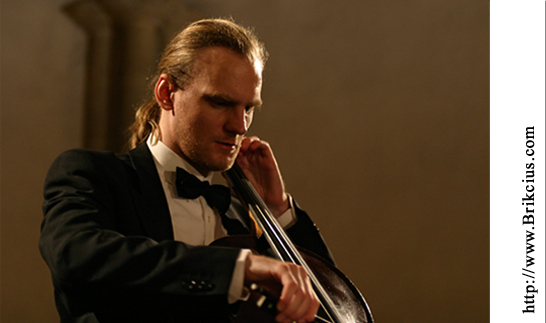Newsletter 53 (November 2014)
Invitation: Concert Festival Brikcius - Duo Brikcius & Year of Czech Music [2 Cellists - 2 Siblings]  You are invited to the November concert "Festival
Brikcius" - the 3rd chamber music concert series at the Stone Bell House / Duo Brikcius & Year of Czech Music (2 Cellists - 2 Siblings),
that will
take place on Thursday 20th November 2014 at 7.30pm, in the
representative concert hall from the 13th century of the Stone Bell
House in Prague (GHMP, 3rd floor, Old Town Square 605/13, Prague 1,
Czech Republic).
The two cellists, brother and sister Anna Brikciusová and František Brikcius (Duo Brikcius), will introduce a new programme for two cellos. It includes: Suite for Two Cellos by composer and cellist from Prague David Popper (1843 - 1913); Chassidic Dances by "Terezín" Jewish composer Zikmund Schul (1916 - 1944); Composition for Two Cellos by Czech composer Bohuslav Martinů (1890 - 1959; Duo by "Terezín" Jewish composer Gideon Klein (1919 - 1945), written shortly before World War II. The Duo and other pieces by Gideon Klein were promoted and revised by composer Vojtěch Saudek (1951 - 2003), grandnephew of Franz Kafka. And Arrangement of the Presto by Czech composer Leoš Janáček (1854 - 1928). As a special encore Duo Brikcius will play the composition Bridges for two cellos by Czech composer and organist Irena Kosíková who lives in France. The music is dedicated to Swiss bridge builder Toni Rüttimann. The next final Christmas concert Cello and Piano & Five Jubilees (Justine Verdier - Piano / France & František Brikcius - Cello) will take place on Thursday 18th December 2014. Tickets for the concerts at the Stone Bell House can be obtained either from Prague Ticket Office - Via Musica (http://www.PragueTicketOffice.com - Time Music, AMU, Malostranské náměstí 14, Praha 1 - Via Musica, Staroměstské náměstí 14, Praha 1 - Tel.: +420 224 826 440), Ticketon.cz or at the door from about 90 minutes before every concert. More information is available on http://Festival.Brikcius.com . FESTIVAL BRIKCIUS - DUO BRIKCIUS & YEAR OF CZECH MUSIC 2014 [2 CELLISTS - 2 SIBLINGS]
Thursday 20th November 2014 at 7.30pm, the Stone Bell House (GHMP, 3rd floor, Old Town Square 605/13, Prague 1, Czech Republic). ANNA BRIKCIUSOVÁ - Cello (Duo Brikcius) FRANTIŠEK BRIKCIUS - Cello (Duo Brikcius) Competition: Win 1 x voucher to the Wellness centre Top Hotel Prague
Win 1 x voucher to the Wellness centre Top Hotel Prague by answering following question:
What anniversaries reminds Duo Brikcius [2 Cellists & 2 Siblings] this year?
Contest is over, lucky winner is L. R. from Brno.
Prize
for the CZECH CELLIST FRANTIŠEK BRIKCIUS NEWSLETTER is
provided by TOP HOTEL Prague, the official hotel of the "Festival Brikcius".
Partner of the month: TOP HOTEL Prague  TOP HOTEL Prague
is a four star hotel, located in Prague 4, just 8 km south of the city
center, but with excellent transport links. Currently presents, thanks
to its large capacity, one of the largest congress and accommodation
hotels in Europe.
TOP HOTEL Prague is an ideal place for congresses, conferences, social meetings, sporting events, informal meetings, presentations, weddings or concerts. It offers accommodation in 810 rooms, congress premises rooms (halls and lounges) with a capacity of 5,000 seats, complete conference services including a technical and data, hotel restaurants and bars with international and Czech cuisine, a large parking lot for 1.000 cars and a wide range of relaxation and sport. TOP HOTEL Prague is a guarantee of quality of service and comfortable accommodation. More details about the TOP HOTEL Prague, the official hotel of the Festival Brikcius, on websites http://www.TopHotel.cz . TOP HOTEL Prague
http://www.TopHotel.cz Meet ... Czech composer Leoš Janáček 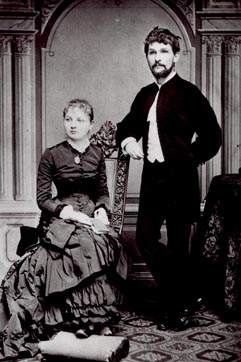 Leoš Janáček (*3. 7. 1854 - † 12. 8. 1928)
Czech composer Leoš Janáček, son of the schoolmaster Jiří Janáček (1815 -
1866) and Amalie Grulichová - Janáčková (1819 - 1884), was born on 3rd
July 1854 in Hukvaldy, Moravia. In 1865 young Janáček enrolled as a
ward of the foundation of the Abbey of St. Thomas in Brno, where he
took part in choral singing under Pavel Křížkovský and occasionally
played the organ. 1874 he joined the Prague organ school, under
František Skuherský (1830 - 1892) and František Blažek (1814 - 1900).
After graduation in 1875 Janáček returned to Brno and from 1876 he
taught music at Brno's Teachers Institute. Among his pupils there was
Zdeňka Schulzová, daughter of Emilian Schulz, the Institute director.
In 1876, he was voted choirmaster of the Beseda brněnská Philharmonic Society. Apart from an interruption from 1879 to 1881, he remained its choirmaster and conductor until 1888. He studied piano, organ, and composition at the Leipzig Conservatory (1879 - 1880) and the Vienna Conservatory (1880). In 1881 he returned to Brno where he married his young pupil Zdeňka Schulzová (1865 - 1938). They had two children Olga (1882 - 1903) and Vladimír (1888 - 1890). 1881, Janáček founded and was appointed as a director of the Organ School, and held this post until 1919, when he helped to change the school into the Brno Conservatory. In 1902 Janáček visited Russia twice. On the first occasion he took his daughter Olga to St. Petersburg, where she stayed to study Russian. Only three months later, he returned to St. Petersburg with his wife because Olga was very ill. They took her back to Brno, but her health was worsening, Olga died in February 1903. In 1905 Janáček attended a demonstration in support of a Czech university in Brno, where the violent death of František Pavlík (1885–1905) at the hands of the military inspired his 1. X. 1905 piano sonata. In 1906 he approached the Czech poet Petr Bezruč (1867 - 1958), with whom he later collaborated. In 1910 Janáček wrote Pohádka (Fairy tale) for cello and piano. Pohádka is based on an epic poem by the Russian author Vasily Zhukovsky (1783 - 1852) entitled The Tale of Tsar Berendyey. A portion of Pohádka was used in the soundtrack to The Unbearable Lightness of Being (1988), the film adaptation of the novel by Milan Kundera (*1929). In 1916 he started working with composer, theatre critic, dramatist and translator Max Brod (1884 - 1968). Janáček began a relationship with singer Gabriela Horváthová, which led to his wife Zdeňka's attempted suicide and their informal divorce. From then on, until Janáček's death, they lived separated lives in the same household. In 1917 he met in Luhačovice, his muse Kamila Stösslová (1891 - 1935). He conducted an obsessive and (on his side at least) passionate correspondence with her, of nearly 730 letters. Janáček retired from his post as director of the Brno Conservatory in 1920, but he continued to teach until 1925. In Janáček's 70th year (1924) his biography was published by Max Brod, and he was interviewed by Olin Downes (1886 - 1955) for The New York Times. In the spring of 1926 he created his Sinfonietta and in the same year he went to England at the invitation of Rosa Newmarch (1857 - 1940), English writer on music who popularised the music of Leoš Janáček in Britain. The Sinfonietta was performed in London, Vienna and Dresden. Janáček became a member of the Prussian Academy of Arts in Berlin in 1927, along with Arnold Schönberg (1874 - 1951) and Paul Hindemith (1895 - 1963). In August 1928 he took an excursion to Štramberk with Kamila Stösslová and her son Otto, but caught a chill, which developed into pneumonia. Leoš Janáček died on 12th August 1928 in Ostrava and he was burried in Brno. Among his notable pupils were Břetislav Bakala (1897 - 1958), Osvald Chlubna (1893 - 1971), Pavel Haas (1899 - 1944), Václav Kaprál (1889 - 1947), Jan Kunc (1883 - 1976), Jaroslav Kvapil (1892 - 1958), Vilém Petrželka (1889 - 1967) and Vilém Tauský (1910 - 2004). Leoš Janáček was a member of the Advisory Committee at the Ministry of Education and National Enlightenment, member of the Czech Academy of Sciences (1912), Prussian Academy of Arts (1927), corresponding member of The School of Slavonic Studies in London, chairman of Moravian Composers' Club (1919), member in most of the important Czech music clubs and institutions. His most outstanding works were awarded national awards and prizes of the Czech Academy of Sciences. In 1925 he was awarded the first honorary doctorate to be given by Masaryk University in Brno. A memorial plaque was revealed on his native house in Hukvaldy and a memorial was built in Štramberk. The Janáček Philharmonic Orchestra was established in 1954 and the Janáček impact crater on the planet Mercury was named in 1985. The 160th anniversary of the birth of Leoš Janáček is commemorated by the Festival Brikcius - the 3rd chamber music concert series at the Stone Bell House & the Year of Czech Music 2014. For more details about Czech composer Leoš Janáček visit websites http://www.Brikcius.com and http://EN.Wikipedia.org/Wiki/Leoš_Janáček . Call for ... Trailer to the film music documentary MAKANNA Trailer to the film documentary MAKANNA is available here: http://www.YouTube.com/watch?v=GUY6-N_NasQ .
Subscribe http://www.YouTube.com/FrantisekBrikcius
|

